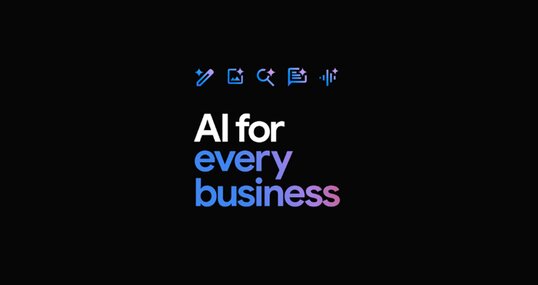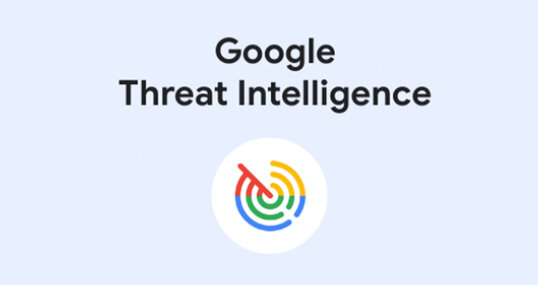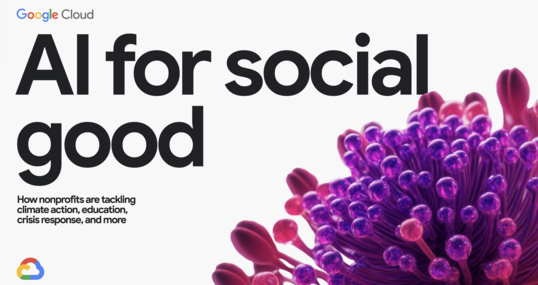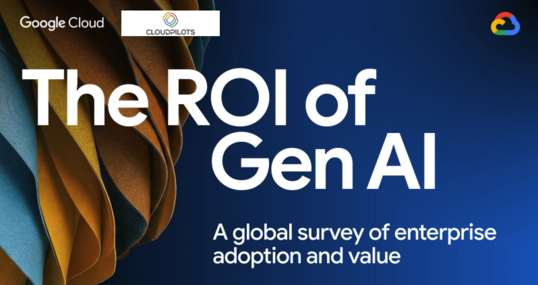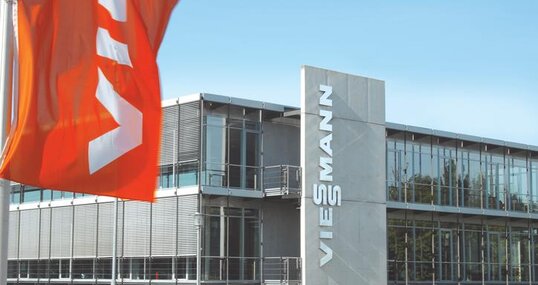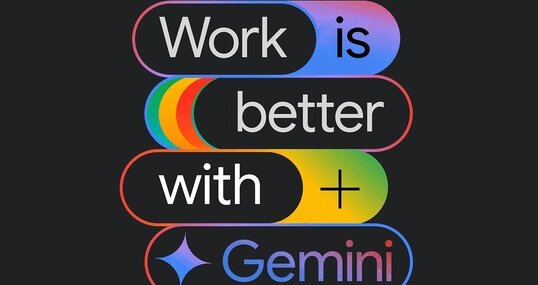AIs of Sunshine: Expanding Economic Opportunity with Generative AI
Nonprofit organizations are leveraging AI-driven solutions to empower job seekers while also gaining insights that businesses worldwide can learn from.
Generative AI has made waves by increasing efficiency and creating opportunities across industries. However, its potential impact goes beyond established enterprises—it is also revolutionizing how individuals enter the workforce.
From education to career advancement, generative AI is becoming an essential tool in professional development. It provides equitable opportunities, especially for marginalized communities, by personalizing learning experiences, enhancing job application materials, and connecting candidates with relevant employment opportunities.
AI-powered learning tools are transforming education by offering tailored support, significantly improving graduation rates. Additionally, AI-driven job coaching solutions help individuals craft compelling cover letters, refine resumes, and identify suitable career paths. These AI enhancements save time and bolster confidence, increasing the chances of professional success.
Historically, access to technology and employment opportunities has not been evenly distributed. A growing number of nonprofit organizations aim to bridge this gap by using generative AI to create pathways to meaningful careers for underserved populations.
To accelerate these efforts, Google.org launched its first generative AI accelerator program, supporting 20 organizations worldwide in developing AI solutions to address pressing global challenges. Applications for the next cohort are already open.
Over the coming weeks, we will highlight the work of several participating organizations, starting with those focused on expanding economic opportunities through AI. For further insights into this initiative, explore our new eBook detailing the incubator’s transformative projects.
Beyond a Million Mentors
Few issues affect as many people as climate change, which is sweeping across the globe. It is often cited as one of the areas where AI holds great promise for devising novel or unexpected solutions to what has so far seemed an unsolvable problem. At the same time, AI is proving its potential to address local challenges, such as disasters and migration patterns exacerbated by climatic events or the all-too-common displacement of people due to economic, political, or social factors.
These challenges may seem far removed from the business world, yet they exert regular pressure on it. As a host of nonprofit organizations and NGOs have begun leveraging AI to tackle global and local issues, their insights offer valuable lessons on how this emerging technology can also benefit companies and workforces.
New Frontiers in Sustainable Materials
Mentorship plays a pivotal role in personal and professional development. However, many individuals from low-income backgrounds lack access to role models who can guide them in their educational and career journeys. Although various organizations and volunteers strive to fill this gap, their resources are often limited.
In the U.S., only 16% of students from low-income communities earn a bachelor’s degree by their mid-20s. To address this, organizations are exploring how technology can bridge the mentoring gap and support students in attaining higher education degrees that lead to fulfilling careers.
Generative AI extends the reach of human mentors, enabling scalable coaching solutions that support thousands of students. Businesses facing workforce skill shortages can adopt similar models to provide innovative training and upskilling programs, improving employee readiness and adaptability in an evolving job market.
Scaling Personalized Career Guidance
The job search process can be overwhelming, particularly for those without access to networks or professional guidance. CareerVillage was founded to democratize career advice, ensuring students from all backgrounds receive relevant support.
By crowdsourcing insights from professionals worldwide, CareerVillage has built a vast repository of career guidance, now enhanced by generative AI. AI models can analyze this extensive database to generate tailored recommendations, making career coaching more accessible and efficient.
During its participation in the AI accelerator, CareerVillage integrated the Gemini API and BigQuery to refine its AI career advisor, known as Coach. This tool, now operational in multiple countries, assists users with interview preparation, AI-powered mock interviews, and resume optimization.
For businesses, adopting AI-driven models like CareerVillage’s can facilitate scalable training solutions for employees and customers alike. AI-powered virtual coaching and skill development programs can enhance employee satisfaction, retention, and overall performance.
Empowering Every Worker
One of the biggest challenges in today’s job market is ensuring that overlooked talent gains access to higher-wage, meaningful employment. Many job seekers face barriers due to a lack of experience, professional connections, or traditional credentials. Others have valuable skills but must navigate biases and outdated hiring practices.
Organizations such as Tabiya and Opportunity@Work are dedicated to breaking down these barriers, helping individuals launch successful careers. By focusing on underrepresented job seekers, these initiatives leverage AI to create more inclusive hiring opportunities.
Tabiya collaborates with government agencies and nonprofit organizations in countries like Ethiopia, India, Kenya, and South Africa to implement scalable, cost-effective job-matching solutions. Using AI-driven conversational agents, Tabiya’s platform prioritizes skills over formal credentials, ensuring that informal and unpaid work experience is also recognized.
Another challenge employers face is identifying candidates with the right competencies for in-demand roles. Opportunity@Work specializes in supporting STARs—workers “Skilled Through Alternative Routes,” such as vocational training, military service, or on-the-job experience, rather than traditional degrees.
By integrating AI with recruitment strategies, organizations can enhance job postings with STARs-relevant attributes and gain deeper insights into the untapped potential of overlooked candidates. AI helps uncover talent that may otherwise be missed, broadening the hiring pool and fostering workplace diversity.
For businesses, leveraging AI in hiring and workforce development presents an opportunity to create a more inclusive and skilled workforce. As labor markets remain competitive, AI’s ability to recognize unique skills and make intelligent hiring recommendations will continue to reshape recruitment practices, benefiting both employees and employers.
This blog post originally appeared on https://cloud.google.com/transform/gen-ai-economic-opportunity-google-org-nonprofit-ai-incubator


